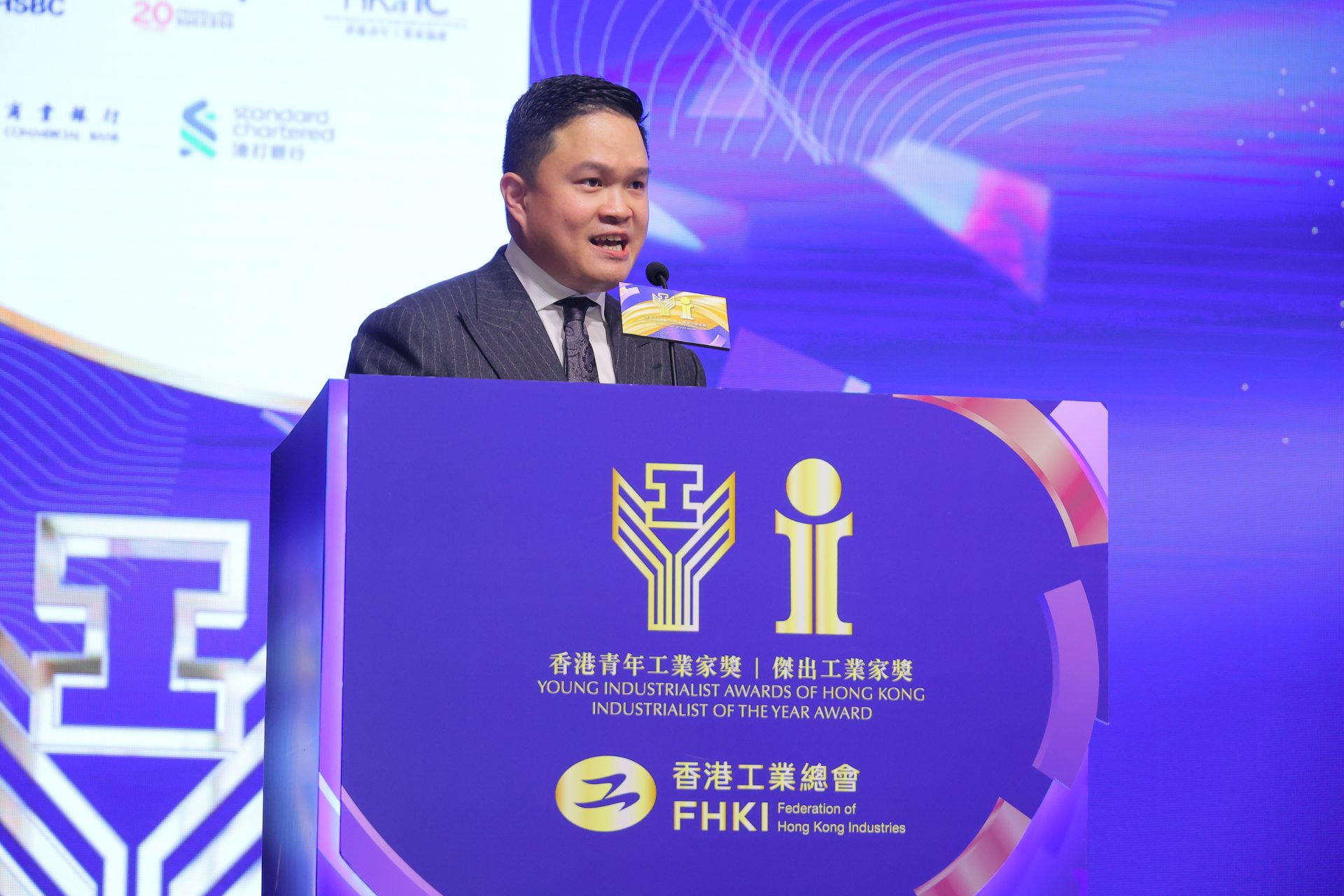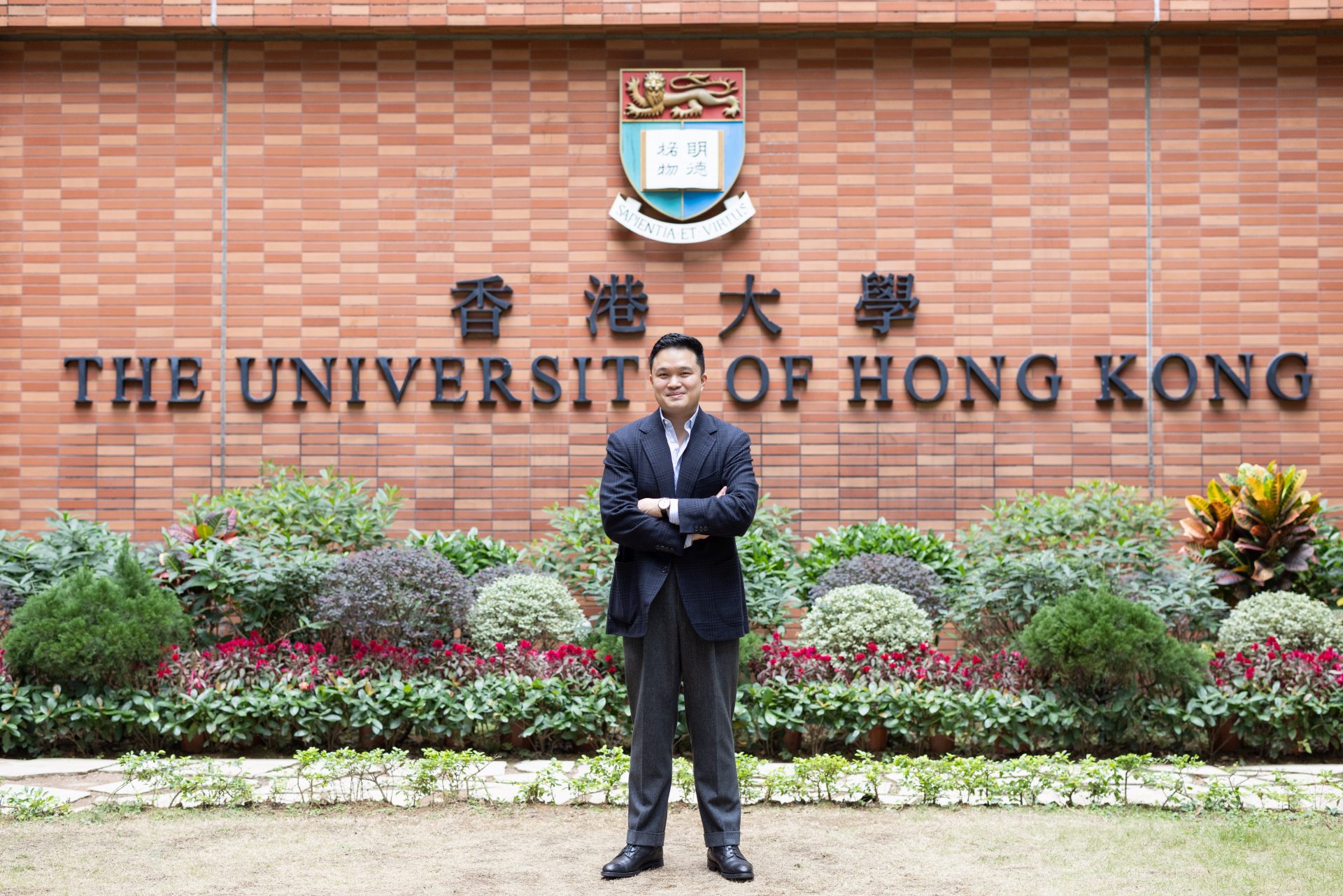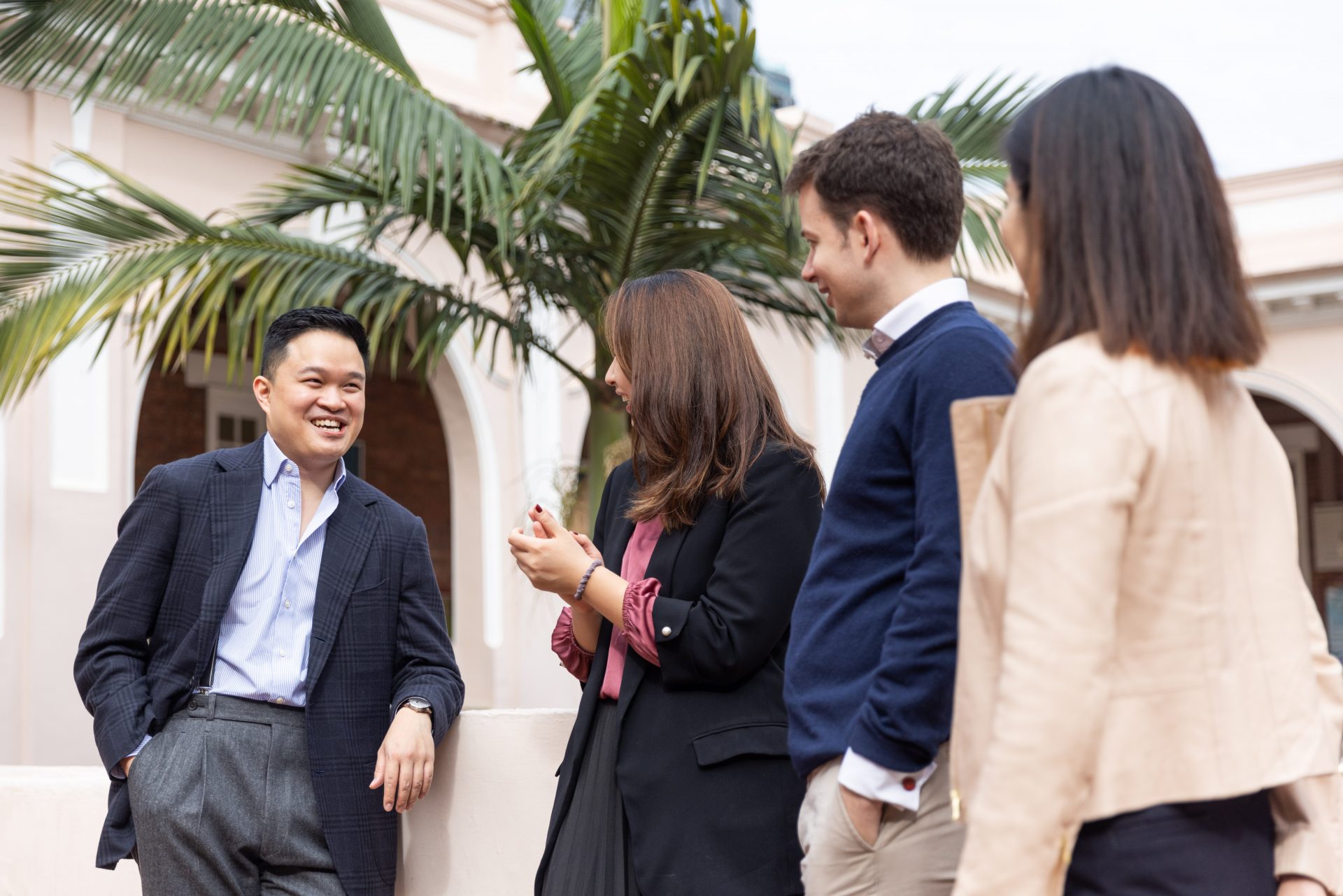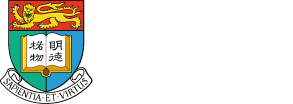Knowledge Exchange
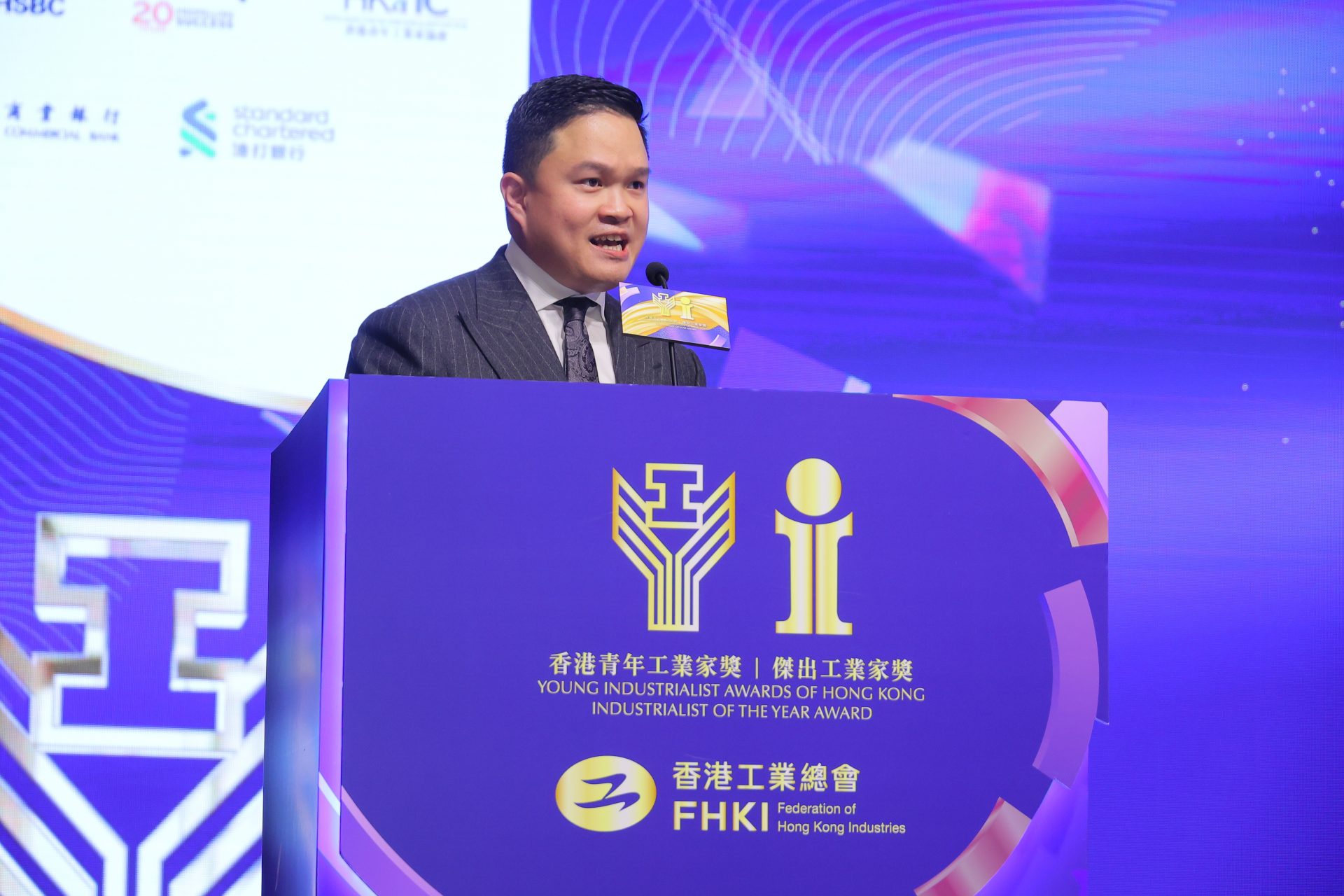
Re-imagining the Future of the Manufacturing Industry
Hong Kong was once the manufacturing centre of East Asia. But since the 1980s, the sector has declined in significance as the city transformed into a knowledge-based economy. In recent years, the SAR government has been promoting re-industrialisation with a focus to bring advanced manufacturing to the city.
Nicholas Lai (Class of 2022) is part of a new generation of industrialists who are pushing the boundaries of manufacturing with cutting-edge technology. He was recently awarded the Young Industrialist Award of Hong Kong for his work in promoting re-industrialisation. We sat down with Nicholas to find out how the HKU MBA shaped his career.
1. What motivated you to pursue an MBA and why did you choose HKU?
I have always been keen on learning. I completed my LLM about five years ago, and to keep up with my solicitor license requirements I have been taking professional development courses for almost 10 years.
I decided to study for an MBA in large part due to COVID-19 travel restrictions. I was travelling extensively for my job pre-COVID-19, and when the pandemic hit, I felt burnt out having to go through multiple 14-day quarantines in order to travel to other countries. So, I made the impromptu decision to stay put in Hong Kong to pursue an MBA experience and hopefully better my career and myself.
I chose HKU Business School because I was brought up around the HKU neighbourhood and it was always my dream to study at HKU – not least because it is the top-ranked MBA school in Hong Kong.
2. Congratulations on receiving the Young Industrialist Award of Hong Kong! Could you tell us more about the award?
I am truly humbled to receive the Young Industrialist Award of Hong Kong, especially as one of the youngest ever awardees in the Awards’ 35-year history.
Launched in 1988 by the Federation of Hong Kong Industries (FHKI), the annual Young Industrialist Awards of Hong Kong (YIAH) give public recognition to young industrialists, aged between 21 and 45, who have attained outstanding achievements in their fields of industry.
I am grateful for being recognised by the judging panel, which is chaired by Professor Sun Dong JP, as “an advocate for industrial automation and re-industrialisation” and being “pragmatic, leading company expansion under sluggish market condition”. The award is great motivation for me to continue striving for excellence.
3. How did the MBA programme influence you, especially on your career development?
The MBA programme was intense and at times challenging, but ultimately rewarding. I was able to polish up my team building and presentation skills as well as being enlightened by international business and workplace wellness theories – some of which I continue to apply at work from time to time these days.
I also picked up the latest on ESG and tech developments from various lecturers and guest speakers, which prepared me for my roles at the Recycling Fund and the Innovation and Technology Fund. Mr. David Bishop has been particularly inspiring with his work at Soap Cycling and I am thankful to have had the opportunity to learn more about the social enterprise even after my time at HKU.
4. You seem to enjoy studying. How do you strike a balance between study and work?
In short, it took a lot of discipline and time-management. I would like to thank the MBA team for being so supportive and accommodating, allowing me the flexibility to study on a full-time basis whilst working a full-time job.
There were, of course, times when balance seemed to be unattainable, but the MBA journey for me was also an opportunity for self reflection, and I would like to think that I became a better person from the experience.
I would like to acknowledge Professor Heiwai Tang for being one of my biggest influences on my HKU MBA journey. His research on Hong Kong industries has inspired me to pursue a research degree relevant to my field of work, and I count myself lucky to be able to integrate my studies with work and potentially derive some synergies that could propel my career forward.
5. What are your future plans?
With the help of HKU iDendron, I was able to launch my tech start-up which provides industrial digitalisation strategies through the SEED programme. The start-up is currently applying to join HKSTP’s incubation programme in order to accelerate its growth and expansion plans. I am also involved in a R&D project with the Hong Kong Industrial Artificial Intelligence & Robotics Centre.
Hopefully, I will be able to leverage my background in business and academia to contribute to industry growth.
6. Any advice for those who aspire to study for an MBA?
Be purposeful. You don’t have to know what you want to do when you first start your MBA journey but use that time wisely. Be open-minded to new knowledge and build up your professional connections and supporting network. The MBA course is a place to learn new things and make new friends, and one should use this opportunity to try new things, polish your skills and reinvent yourself.



